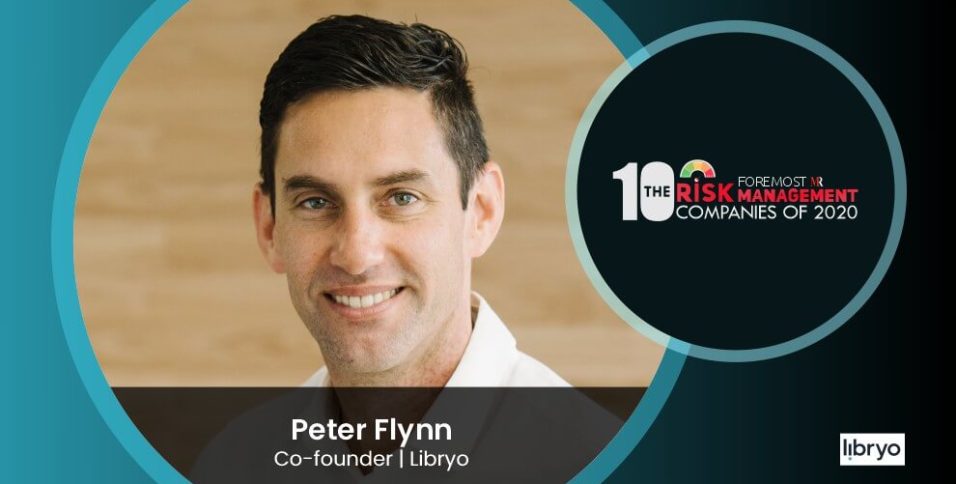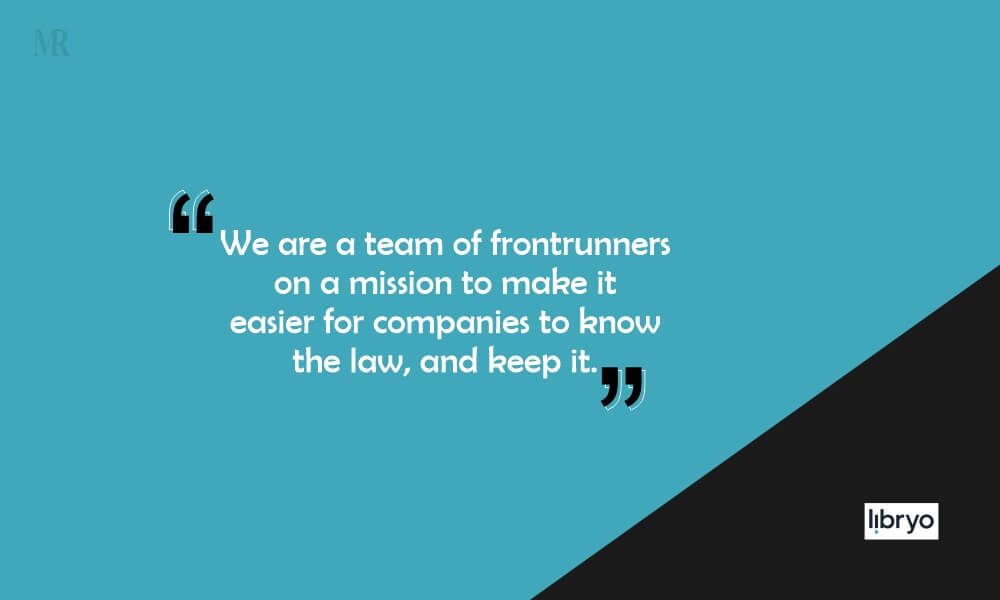Libryo is the brainchild of the trio of Peter Flynn, Garth Watson, and Malcolm Gray (Co-founders). Established in 2016, the London-based compliance scale-up sees a world where anyone can know what the law requires of them and others, to achieve environmental, social, and financial justice.
Libryo exists to be a catalyst for a sustainable world by radically re-organizing the world’s regulation and making it easily available. It is also building a definitive global marketplace for legislation, where Libryo users can seamlessly obtain legal content and professional services. Over the next few years, the company aims to have all of the world’s regulations readily available on its platform for easy access. Presently, it offers a legal tech solution to businesses. However, it ultimately aims to help a broad set of stakeholders with solutions around legal requirements and policies.
Comprehensive Compliance Services
Libryo is the only company in the world that turns legal content into legal data and then uses a customer’s context to determine what legal requirements apply to them. Typically, competitors require their customers to spend large amounts of time figuring out what law applies to them manually. Then, they collect the applicable content in various formats and keep it up to date in a manual way. This is prone to human error and creates problems for multinational organizations that are not able to see cross-comparable legal information for their whole business, across all operations.
Subsequently, Libryo is building a database of the world’s law in a consolidated format to help reduce human errors and streamline the legal information. This allows customers and third parties to access the law through its API for their different use cases. It also provides a SaaS solution, which its customers subscribe to on an annual basis. Moreover, the company provides its legal data (Data as a Service) via API keys for the partners and works with them to integrate data and use it to deliver regulatory compliance solutions for the partners’ customers. Libryo takes the legal research legwork away from its customers and partners, and delivers only the applicable regulations and requirements to each customer at a local, regional, national, or global level.
Turning Law into Data
Most people in business want to comply with all applicable laws, however, they often fail to do so. This is essentially due to a fact that law exists as unstructured content in multiple formats, in multiple spoken languages, and has to be sourced from many different physical places, thus making it near impossible to know legal requirements in an ever-changing regulatory environment.
Resolving this issue, Libryo is turning law into data by extracting legal text and using metadata to put the text into context and to identify meaning in a uniform, global, and cross-comparable machine-readable format. “We believe that the existence of this data will revolutionize the entire legal requirements element of the global risk management industry,” adds Flynn.
The Trio Optimizing its Capabilities
Peter, alongside his fellow co-founders, has a non-traditional and non-hierarchical way of defining his roles and responsibilities at Libryo. The trio divides responsibilities according to their personal and professional strengths, using the RASCI framework. Peter’s responsibilities are technology, product development, and sales of new products, while also working closely with Garth and Malcolm on developing the company strategy. He has had a multifaceted career as a professional musician, a freelance web developer, and the co-founder of a large web application development consultancy and large technology conference in South Africa. Peter alongside his co-founders, is leveraging all his experience to drive Libryo towards hypergrowth, both in revenue and realized value to customers.
New Strategies, New Solutions
Like most companies, the COVID-19 pandemic forced Libryo to find new ways to operate. Being a venture-based startup, it strategically runs the business at a loss to pour as many resources as possible into product development and growth. When the pandemic hit, the company realized that it needed to extend its cash runway as far as possible and act fast without losing any employees.
Heeding to this COVID crisis, Libryo implemented a strategy of a 20 percent pay cut across the whole company, which has enabled it to extend its runway far into the future. The company is also closing a new round of capital (over £1m already closed as at December 2020), which will see it in a strong financial position for the foreseeable future.
Besides operational changes, the pandemic also forced companies to embrace digital solutions quickly. Being an agile tech provider, Libryo quickly got to work developing a free solution called the COVID-19 Regulation Tracker, to help other businesses globally know their legal requirements concerning the pandemic. This helped to support the organizations struggling to cope with the impact of the virus and ensure that the work environments are safe for their employees and customers.
Remote Working: The New Standard
The lockdown impositions due to the pandemic have resulted in companies asking the employees to work remotely. While remote working was relatively new for most companies, Libryo was used to the concept as it was a ‘Remote First’ business since its inception. At Libryo, no employee has a fixed desk, and its employees, spread across 8 countries, can work from wherever they choose, provided the internet is good. “For us, it’s really just been about less travel for meetings, a more deliberate regime of rest and being able to hire the best talent without forcing them to have to move from their communities,” asserts Peter.
Preparations for the Future
Once there is global herd immunity to COVID, Peter foresees a huge cultural resistance to returning again to the office or factory 5 days a week, and also to travelling as frequently for business meetings as before COVID. This has massive repercussions in regard to what work-related tasks look like in the future, and the systems needed to manage the associated risks. He believes that occupational hygiene and related categories of risk management will be important in organizational management in the future.
Anticipating the changes, Libryo recently launched version 3 of the Libryo Platform which makes the ingestion of the legal content even faster, thus enabling it to onboard customers in brand new territories within weeks. It is also finalizing the Libryo Assess module, built to help organizations complete self-assessment and gain visibility of their compliance and risk status across all of their operations in a single dashboard. By 2025, the company aims to be the best and most comprehensive global Data-as-a-Service ecosystem and Software-as-a-Service marketplace for legal and other requirements.






